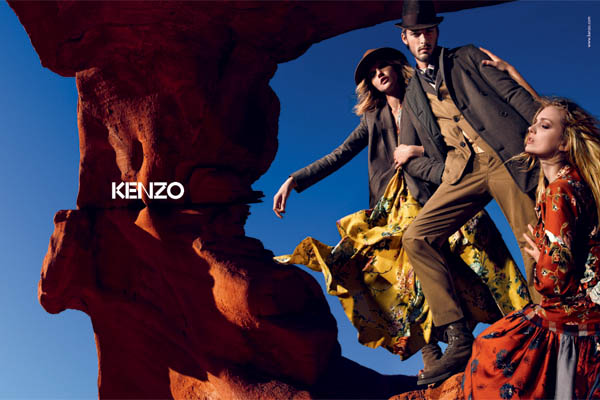A well-known fashion brand will not necessarily be able to be monopolised, notwithstanding its fame and repute in the fashion world, and notwithstanding the phenomenon of co-marketing of fashion brands in new categories.
Kenzo Tsujimoto, of Japan, successfully defended an opposition to his KENZO ESTATE trade mark, covering wine, alcoholic fruit beverages and western liquors.
Kenzo SA, owner of the fashion brand KENZO, failed to successfully oppose the KENZO ESTATE application. In an attempt to make out its reputation in the trade mark ‘KENZO’, Kenzo SA put forward evidence that all ‘live’ marks on the Register for KENZO were in its name. It also put forward evidence of co-marketing of fashion brands and beverages.
However, Kenzo Tsujimoto showed that it is not uncommon for well-known fashion brands to be owned by third parties in relation to beverages, and tendered evidence of various third party trading names (registered and in use) for the term ‘KENZO’.
Hearings Officer Thompson concluded that the term KENZO was not in any way exclusive to the Opponent. The degree and extent of the reputation of Kenzo SA’s ‘KENZO’ trade marks was not sufficiently substantial, on its own, to cause confusion. He stated ” while it might be that the use of some particularly well-known fashion brands in relation to wines by persons other than the brand owners might well deceive or cause confusion, I am not persuaded by the evidence that such is likely to be the case here” : Kenzo SA v Kenzo Tsujimoto [2012] ATMO 58 (22 June 2012).
Kenzo Tsujimoto, of Japan, successfully defended an opposition to his KENZO ESTATE trade mark, covering wine, alcoholic fruit beverages and western liquors.
Kenzo SA, owner of the fashion brand KENZO, failed to successfully oppose the KENZO ESTATE application. In an attempt to make out its reputation in the trade mark ‘KENZO’, Kenzo SA put forward evidence that all ‘live’ marks on the Register for KENZO were in its name. It also put forward evidence of co-marketing of fashion brands and beverages.
However, Kenzo Tsujimoto showed that it is not uncommon for well-known fashion brands to be owned by third parties in relation to beverages, and tendered evidence of various third party trading names (registered and in use) for the term ‘KENZO’.
Hearings Officer Thompson concluded that the term KENZO was not in any way exclusive to the Opponent. The degree and extent of the reputation of Kenzo SA’s ‘KENZO’ trade marks was not sufficiently substantial, on its own, to cause confusion. He stated ” while it might be that the use of some particularly well-known fashion brands in relation to wines by persons other than the brand owners might well deceive or cause confusion, I am not persuaded by the evidence that such is likely to be the case here” : Kenzo SA v Kenzo Tsujimoto [2012] ATMO 58 (22 June 2012).
Roanne De Menezes


